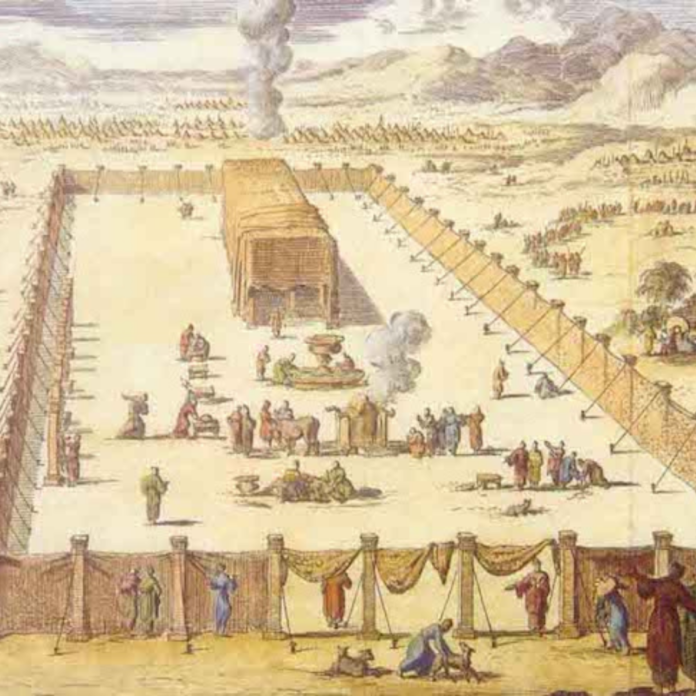
Israel are commanded to create a mishkan, a sanctuary for God. It had to be a building where worship took place and people would encounter the presence of God in their midst.
The people needed the mishkan, but did God? The Torah says He did; it says v’asu li mikdash, “they shall make Me a sanctuary” (Ex. 25:8).
Difficult to understand when you look at the 66th chapter of Isaiah which says that God’s dwelling place is everywhere. Surely God cannot be pinned down to any one place or territory.
But it is not in the edifice that God is located but in the people who enter and use it. It is in the people themselves that the Divine spirit rests.
Each person is equal in the sight of God. Each has the capacity to sense that they matter to the Almighty. Each has eyes to see the majesty of the world, ears to hear the Divine Word of justice, peace and truth, a mouth to acclaim the greatness of the Creator.
Outside the sanctuary people tend to get up to mischief; inside the edifice they are changed forever and become, in the words of Psalm 8, “little lower than angels”.
CHOOSE ONE MITZVAH
A rabbinic rule says that whoever carries out the command of tzitzit is as if he has fulfilled the whole Torah (Sifrei Bamidbar 16:39).
Tzitzit is very important, but what about the other 612 mitzvot?
A person ought to keep the whole of the 613 commandments but they need a lead-in that will bring them to the entire mitzvah-life. Become an expert in one mitzvah and gradually expand to a second, a third, a fourth one, and eventually the total mitzvah-life.
The Talmud hints at this when it tells us (Kidd. 39b) that Rabbi Yehudah concentrated on devotion in prayer and Rabbi Nachman emphasised having three special meals on Shabbat.
When you look at this week’s sidra you see that the opening verses place importance on offerings. Many people focus on the donations they give to Jewish causes. Wonderful, but they could expand their commitment – if they give money for education the next thing is doing some study themselves. If they give to Israel the next stage is to contemplate Aliyah.
The mitzvah that leads them into Judaism should eventually bring them to the full mitzvah-life…
The haftarah begins (I Kings 5:26) by telling us that the Almighty gave Solomon wisdom.
In what way does this statement link up with the sidra with all its multifarious architectural details?
According to Kimchi, it was in the great building projects which Solomon undertook that his wisdom was shown.
Wisdom is not the same as learning. It is practical planning and implementation. What you build, the way you build, the overall vision for the series of buildings that you undertake, all are evidence of your practical capacity.
View this article on the OzTorah website.
Visit the OzTorah website for more insights on parashat T’rumah.
Shabbat shalom!









